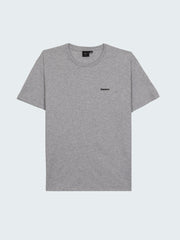We know our biggest environmental impact lies in the materials we use. But that also makes it our greatest opportunity to improve. In 2024, 93% of our collection was crafted from organic, recycled, or natural fibres.
Impact Report 2024: Our Materials
10.04.25
2 min read
We carefully select materials that balance performance, longevity and lower environmental impact. In 2025, we will publish an updated list of our preferred fibres, which meet higher environmental and social standards, and benchmark our full collection against them to guide future improvements.
From natural fibres like wool and cotton to engineered fabrics that protect against the elements, we choose materials for their unique properties and purpose. Sometimes the best option is a traditional one, rooted in how people have dressed for these rugged coastal environments for generations. Other times, innovation leads the way, with technical fabrics that offer lightweight warmth, weather resistance and long-term wear.
76% of our carbon footprint comes from the materials we use
We are also working hard to find more natural and recycled alternatives to synthetics that do not compromise on performance and are available in the smaller volumes we need as an independent brand. It is not always easy, but we are committed to making better choices, season after season.
Data reflects percentages of materials in our 2024 range, based on fabric composition of each style by volume of product, excluding trims.
What we did in 2024:
-
Expanded our use of recycled cotton, sourced from pre-consumer waste.
-
Launched our first jumpers made from 100% recycled merino wool.
-
Partnered with The New Zealand Merino Company, the world’s leading ethical wool standard.
-
Increased our use of recycled fibres from 27% to 31% compared to 2023.
What we're doing in 2025:
-
Introducing ZQRX, regeneratively grown wool into our range.
-
Continuing to transition more styles to regeneratively farmed cotton.





























































































